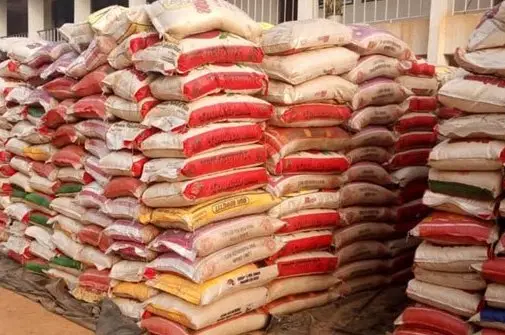suspension of custom duty begins next week.
The directives for suspending customs duties and taxes on imported food items will go take effect next week, the federal government stated on Tuesday.
In July, the Federal Government granted a 150-day duty-free window to allow the importation of maize, husked brown rice, and wheat as part of initiatives to tackle growing food prices across the country.
The effort was founded on the implementation of the Presidential Accelerated and Stabilization Advancement Plan.
Speaking at a meeting of security agency leaders in Abuja on Tuesday, the Comptroller-General of Customs, Bashir Adeniyi, stated that the policy will be implemented once the guidelines were available.
He added that the delay in policy implementation was necessary to ensure that all stakeholders, including farmers, had their interests considered.
The Customs boss advised Nigerians to be patient, saying that some imported commodities currently in the country will be cleared tariff and tax free.
Adeniyi stated, “There is a need to strike a compromise between the long-term interests of Nigerian farmers and parties involved in the production of these commodities and the short-term interest of food inflation.
“The guidelines are being worked on at the Ministry of Finance, and I can tell you that they will be available within the next week. The Nigerian Customs will begin implementing these specific fiscal measures. So I ask Nigerians to be patient, thinking that some of the things that have already arrived on our shores would be cleared without the imposition of Customs duties and levies.”
Adeniyi expressed hope that suspending duties and taxes on imported food goods for a period of time will assist lower food prices.
He stated that the service was dedicated to implementing the government’s policies.
“We believe that doing this will assist to down food prices in the market. Nigerian Customs is committed to implementing the government’s budgetary policy.
“What does this type of intervention mean for local markets? Because we want to address the interests of all stakeholders. Nigerian farmers are also cultivating the crops that will benefit from the tariff waivers and discounts.
Adeniyi remarked that since the protests were centered on alleviating hunger, the administration has been working to abolish hunger.
He stated, “The ongoing protest has been based on many themes which include hunger”.
I’d like to inform Nigerians that there has been a lot of work done to address the difficulties surrounding this circumstance through a combination of government budgetary policies and a variety of strategic interventions from ministries, departments, and agencies.
“One of the things that comes to mind is the intervention, which involved the distribution of strategic food products from the national grain stockpiles around a month ago. This was made available to all states of the federation. We should also realize that many of the foods consumed in Nigeria are imported. A large portion of the components are imported, and this is not done on the shelf.
“It takes some time until they are finished. So one So one of the things that the President has done is to cushion the effect of the cost inflation by suspending customs duty and taxes on imported food items for some time.”




